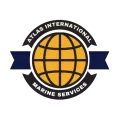
Ship collisions can be catastrophic events, leading to loss of lives, environmental damage, and financial repercussions.
In order to minimize the risks and ensure the safety of all involved, it is crucial for maritime authorities, ship operators, and crew members to adhere to established protocols.
In this blog, we will discuss the key steps and procedures to follow in case of ship collisions.
Immediate Response
When a collision occurs, the immediate response is critical in preventing further damage and ensuring the safety of everyone on board. The following actions should be taken:
Assess the Situation: Determine the extent of the collision, the condition of the ship, and the safety of the crew and passengers.
Sound the Alarm: Activate the ship’s emergency alarm system to alert everyone on board.
Communicate: Establish communication with the other vessel involved in the collision, as well as with nearby vessels, the coast guard, and relevant authorities.
Man the Lifeboats: Prepare lifeboats and life rafts for potential evacuation if necessary.
Activate Emergency Systems: Activate emergency power, fire suppression systems, and other safety mechanisms as required.
Gather Information
After ensuring immediate safety, it is important to gather as much information as possible about the collision.
This will aid in determining liability, assessing damages, and facilitating insurance claims. The following steps should be taken:
Record Details: Document the time, location, weather conditions, and visibility at the time of the collision.
Take Photographs: Capture photographs and videos of the damage sustained by both vessels, as well as any relevant environmental impact.
Exchange Information: Exchange contact details, vessel identification, and insurance information with the other vessel involved in the collision.
Interview Witnesses: Interview crew members, passengers, and any witnesses to gather additional information and perspectives.
Notify Authorities
In the event of a ship collision, it is crucial to notify the appropriate authorities. This will initiate the necessary investigations and ensure that proper measures are taken.
The following steps should be followed:
Report the Incident: Contact the nearest coast guard station or maritime authority to report the collision. Provide them with all the relevant details and information.
Cooperate with Investigations: Comply with any requests for interviews, statements, or evidence from the authorities and investigators.
Follow Legal Obligations: Adhere to local laws and regulations regarding reporting and notification procedures.
Mitigate Environmental Impact
Ship collisions can have severe environmental consequences, especially if they result in oil spills or other hazardous material leaks.
To minimize the damage, the following actions should be taken:
Activate Pollution Control Measures: Deploy containment booms and other equipment to control and mitigate any spills or leaks.
Inform Environmental Agencies: Notify relevant environmental agencies or organizations, providing them with accurate and timely information about the incident.
Coordinate Clean-up Efforts: Collaborate with local authorities and specialized teams to initiate clean-up operations and minimize the impact on marine ecosystems.
Final Thoughts
Ship collisions are unfortunate events that can have serious consequences.
Even with strict regulations for training and qualification of seafarers, many a time the crew gets panicked and forgets the duties during such emergency.
By following the protocols outlined above, maritime authorities, ship operators, and crew members can effectively respond to such incidents.
Remember, prevention is always the best approach, but being prepared and knowledgeable about the necessary protocols in case of a collision is equally important.
Stay safe and sail responsibly!
Found this article interesting, and useful? Please feel free to interact, recommend and share.
If you have any questions about this topic or would like to discuss your own business needs, please contact us today!
